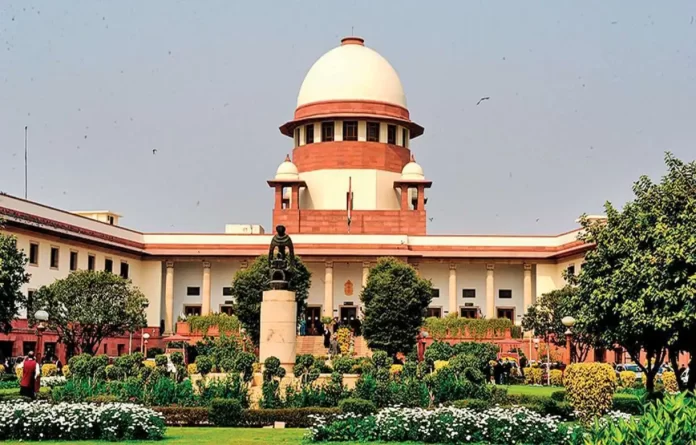The Supreme Court bench of Justice Hrishikesh Roy and Justice SVN Bhatti has stayed the controversial orders of Uttar Pradesh and Uttarakhand that directed shopkeepers selling food on the route taken by Kanwariyas during the Kanwar Yatra) to display the names of owners of the shops as well as their staff.
The order said, “We deem it appropriate to pass an interim order prohibiting the enforcement of the above directives. In other words, food sellers, including daba owners, hawkers etc. may be required to display the kind of food they are serving to the Kanwarias. But they must not be forced to display the names of the owners and staff.”
The Court said if the petitioners specifically argued that the directives were permitetd to be enforced without any support of constitutional or legal provisions, it will infringe the secular character of our republic. “This will also have the effect of violation of the guaranteed rights under Articles 14, 15(1), 17 of the Constitution,” the bench said.
Trinamool Congress MP Mahua Moitra, Delhi University Professor Apoorvanand Jha, columnist Aakar Patel and the Association for Protection of Civil Rights (APCR) had challenging the directives issued by the governments of Uttar Pradesh and Uttarakhand to owners of eateries along the Kanwar Yatra route. The APCR petition was drawn up by Advocate-on-Record Ujjwal Singh.
The petitions had contended that the directives issued by the States of Uttar Pradesh and Uttarakhand caused disproportionate intervention and violated the fundamental rights of the citizens guaranteed under Articles 14, 15 and 17 of the Constitution.
The directives also affected the rights of Muslim shopkeepers and staff, who have been fired pursuant to the directives, which violated Article 19(1)(g).
The directives also violated the peoples’ right to privacy and dignity, consequently violating Article 21 of the Constitution, it added.
The governments of Uttar Pradesh and Uttarakhand recently issued a directive amid preparations for the annual Kanwar Yatra, a pilgrimage undertaken by Shiva devotees known as Kanwarias or ‘Bhole’.
In this pilgrimage, the devotees travel to key Hindu pilgrimage sites such as Haridwar, Gaumukh & Gangotri in Uttarakhand and Ajgaibinath in Sultanganj, Bhagalpur, Bihar, to fetch holy water from the Ganges River.
Initially described as ‘voluntary,’ the directives have been widely endorsed by state officials and are now being rigorously enforced across all districts of Uttar Pradesh and Uttarakhand. The Uttarakhand government also issued an oral advisory last week aligning with this directive.
On July 18, 2024, the Senior Superintendent of Police, Muzaffarnagar, issued a directive requiring all eateries along the Kanwar route to display the owners’ names. This direction was extended statewide on July 19.
Filed through AoR Akriti Chaubey, the petition contended that the impugned directives encouraged discrimination on grounds of caste & religion and cannot be seen to serve any ‘legitimate purpose.’
It said the directives promoted discrimination solely based on religious and caste identity, as they did not require the display of food items being served or a statement that no non-vegetarian or non-satvik food was being served, but only the display of religious or caste identity explicitly in one’s name. This directly breached Article 15 of the Constitution of India, it added.
Calling the advisory ‘forcibly enforced,’ the petition contended that it was an overreach of the state authority. It alleged that the public notice and its consequent enforcement were without the authority of law.
It alleged that the impugned directives have been forcibly enforced often by overzealous police officers, and non-compliance has reportedly resulted in detentions. The display of names has been followed by forcing business owners to dismiss employees of a certain community, noted the plea.
The petitioners submitted that the directives endorsed the practice of ‘untouchability,’ which was explicitly barred in any form under Article 17 of the Constitution. Article 17 barred the enforcement of any form of disability arising out of ‘untouchability’, which would include encouraging the practice of not being served by people of certain castes and religions, they added.
The directives also violated the right to privacy of owners & workers of shops and eateries, exposing them to danger and making them targets, the petitioners had contended.


